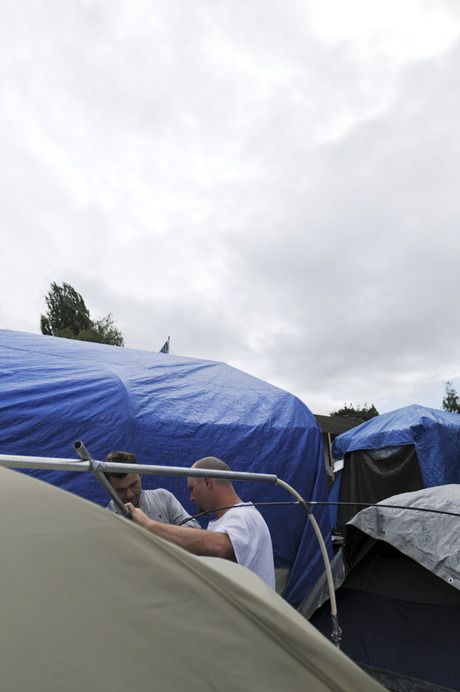The Washington state House of Representatives and Senate have passed House Bill 1956, which provides cities with guidelines on what is and is not acceptable when adopting an ordinance regulating homeless encampments. The bill now awaits Governor Chris Gregoire’s signature.
Coincidentally, the legislation comes amid discord between the Mercer Island Clergy Association and the city over the latter party’s recently adopted Temporary Encampment Ordinance.
Clergy Association members are arguing that stipulation 2.A.20, which mandates that the managing organization behind Tent City must obtain warrant and sex offender checks with King County for residents, and that the religious organization hosting the encampment is responsible for verifying that this occurs, challenges their constitutional right to minister to the homeless.
HB 1956, drafted by state representative Brendan Williams, was reintroduced to state legislators earlier this year. Now that the House and Senate have approved the legislation, it awaits the signature of Gov. Gregoire. She has 20 days to consider and sign the bill.
Rep. Judy Clibborn (D-41) said that she “thinks the bill is ready to go” and that Gregoire will indeed sign the legislation.
Mercer Island City Manger Rich Conrad said that, although the city and Clergy Association are aware of HB 1956, it does not change any fundamental elements in the city’s Temporary Encampment Ordinance. Nor does is it relate to the issue at the heart of the dispute — a mandate for Tent City warrant and sex offender checks — between the city and Clergy Association.
“The only component in the bill that would affect the ordinance is about churches providing harmless liability insurance for temporary encampments,” Conrad said, referring to HB 1956’s requirement for religious organizations that host temporary encampments to procure insurance that prevent cities from getting sued.
What the bill does do, however, is support the Clergy Association’s argument that the city is required to use the “least restrictive means necessary” to regulate ministerial projects such as Tent City.
The Clergy Association is currently talking with members of the city in hopes that a compromise over the Temporary Encampment Ordinance can be reached. Although the ordinance has already been approved by Councilmembers, there may be the possibility of rehearing the agenda item if an agreement cannot be reached, said Mayor Jim Pearman.
The United Methodist Church, located in the First Hill neighborhood along S.E. 24th Street, hosted Tent City 4 for three months in 2008. Tent City, a roving homeless camp, is organized by the Seattle nonprofit organization SHARE/WHEEL.
For background, search “Tent City” in the Reporter’s online archive.



